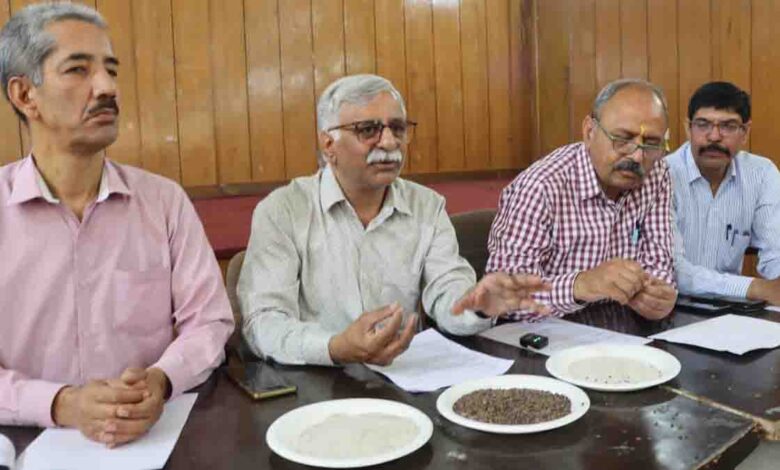Set up food testing labs to combat adulteration: SPECS

PIONEER NEWS SERVICE | Dehradun
The State government should establish laboratories for consumers and local shop owners to check their food items in order to address the issue of food adulteration. The president of the Society of Pollution and Environmental Conservation Scientists (SPECS), Brij Mohan Sharma said this during a press conference held here on Thursday.
Sharma said that he had recently come across reports of food poisoning cases in the district associated with the consumption of buckwheat flour. He said that such cases are not being reported for the first time; instances of food adulteration occur all the time. Both consumers and local shop owners are victims in these cases. He said that every year, they test samples of buckwheat flour and this year, SPECS collected 20 samples from different markets on March 28 and 29, 2025. Out of these, eight samples contained fungus, three samples contained excessive amounts of sodium benzoate and seven samples contained excessive amounts of calcium propionate. Only two samples were found to be pure.
Sharma said the reasons behind the adulteration of buckwheat flour, which poses health risks to consumers. He stated that the shelf life of buckwheat flour is only two to three months. Yielding occurs in September and October, with harvesting taking place in February and March. Suppliers often mix 80 per cent old buckwheat flour with only 20 per cent new flour, leading to an imbalance and spoilage, which can cause food poisoning.
He also highlighted that improper storage, which can lead to moisture in the flour, results in fungal and bacterial infections that negatively impact consumers’ health. Further, many suppliers add three chemicals, but excessive amounts of these chemicals can be harmful and spoil the flour. These chemicals include benzoyl peroxide, calcium propionate, sodium benzoate and various antioxidants. Buckwheat flour can be adulterated with substandard maize, rice, or wheat flour, as well as with white wood dust, boric acid, marble powder and ergot, which is a toxic substance. These adulterants not only compromise the quality of buckwheat flour but can also pose serious health risks, he said.
Sharma emphasised the need for consumers and others to check whether the flour is pure with some points including its colour, smell and others. He urged the government to set up food laboratories where consumers and other stakeholders can test for adulteration. Additionally, he suggested that courses related to food safety should be included in the educational curriculum.






